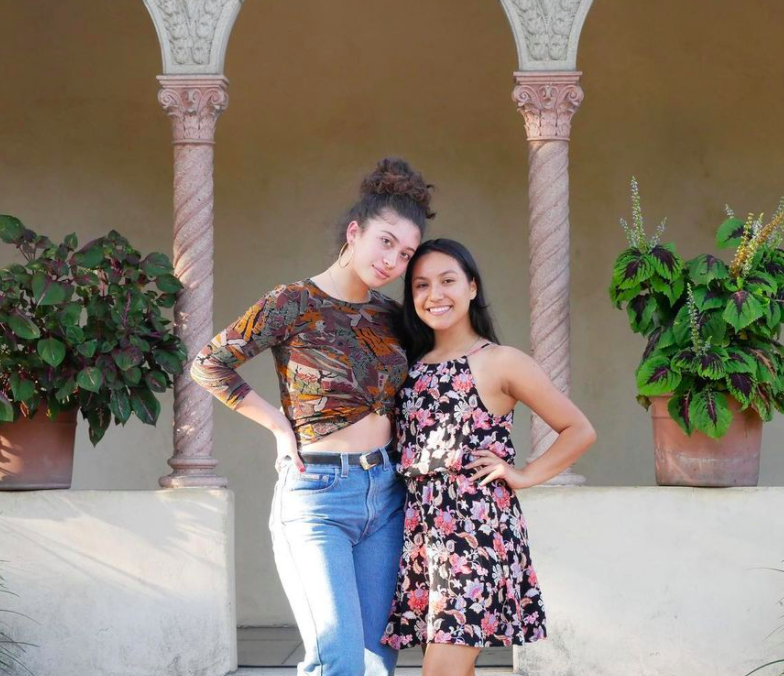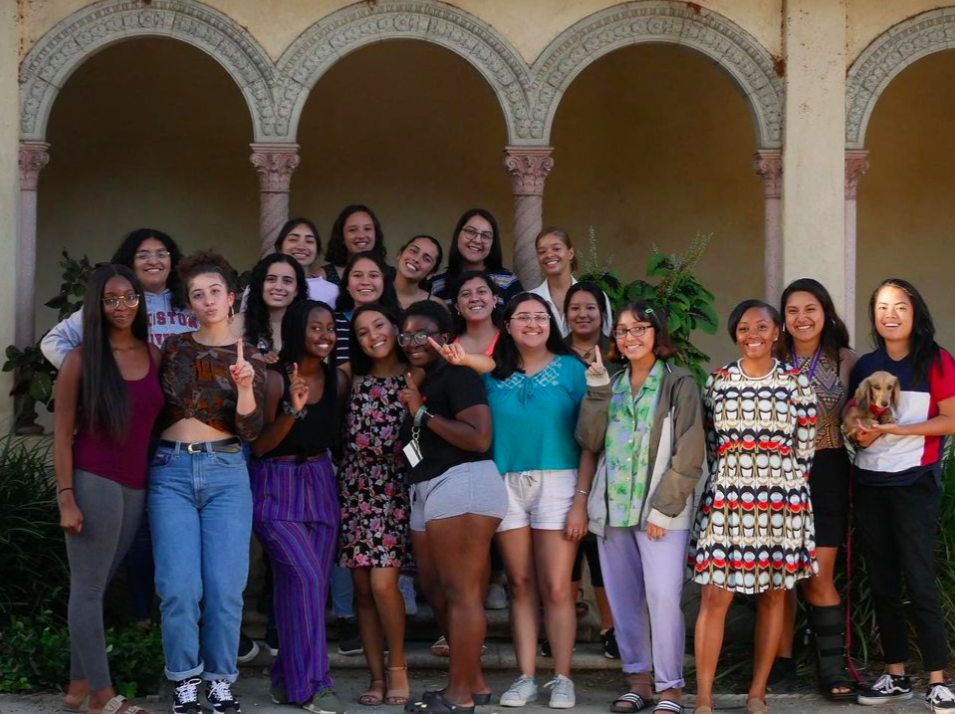Hi everyone!
Today I would like to talk about being the first in my family to attend college and being from a working class background.
Coming to Scripps was a dream come true for me, but for the first time I felt like an imposter in my own campus community. For a long period of time I sat with these new feelings of guilt and shame and tried to decipher the origin. I knew that I had to do something or else my mental health and grades would plummet. I noticed that I had drifted away from my Cafe Con Leche community (Scripps Latinx affinity group) and I felt this disconnect very quickly after. I knew I could not battle these imposter syndrome feelings on my own, so I began to make time to attend the Cafe Con Leche weekly meetings. Surely enough the first workshop held focused on imposter syndrome! I had no clue there was even a word for it, so having a term to verbalize provided much clarity for what I was feeling. Slowly but surely, I began to verbalize these foreign feelings and my Cafe Con Leche community which was able to ground me and give me different perspectives that enabled me to realize that I was not alone in this journey. This learning experience allowed me to realize the power of collective consciousness in grounding myself and the multifaceted approach of dealing with these feelings. I learned to reconnect and trust my innate intuition which prepared me to be vulnerable, patient, and proactive when dealing with my own issues and relating to others who experience similar situations.

1st Generation Mentor-Mentee mixer at Margaret Fowler Garden with my mentee Alondra Alvarez Murillo
Another hard experience was coming to terms that worrying about expenses was something my wealthy peers did not have to think about as much as I did. Coming from a working-class background I knew I had to take on multiple jobs in order to be able to sustain myself during this college transition. I was cognizant to learn the importance of budgeting in college as well.
Over the years, I have applied to various scholarships both at Scripps and outside of Scripps. I was awarded the Mary Louther Scholarship from Letters to Strangers, which is a nonprofit that focuses on destigmatizing mental illness and increasing access to affordable, quality treatment, particularly for youth. Additionally, Scripps provides me with a book stipend every semester to be able to buy books for my courses. Lastly, I was awarded the Racial and Justice Equity fund where I am currently conducting qualitative interviews with volunteers from the community gardens I volunteer at in the city of Pomona asking them about the ways in which community gardens can be a space of ancestral and cultural knowledge transmission and preservation. By overcoming my imposter syndrome, breaking out of my shell, and being fueled with vitality I was motivated to apply to scholarships because I trusted my abilities and my power.
Being first-generation and low-income at a predominantly white institution was challenging at first, but thankfully I have learned that there are plenty of resources one can apply to as a low-income student navigating academia. My experiences and perspectives have paved the way for me to help other incoming first-generation and low-income students in their journey and for this I am very thankful.


